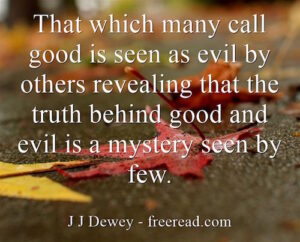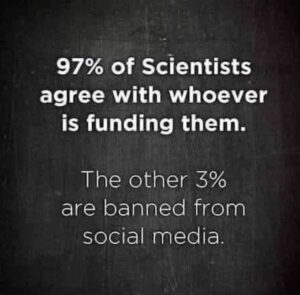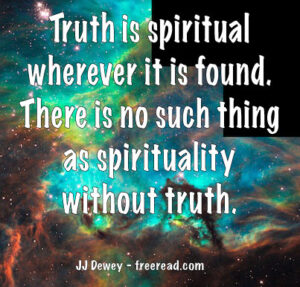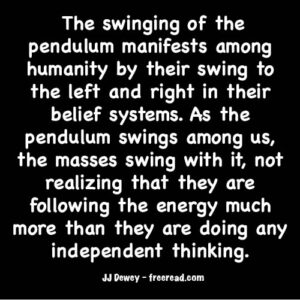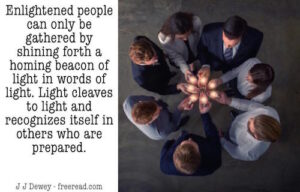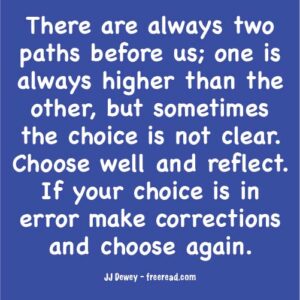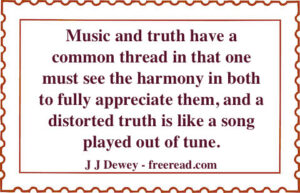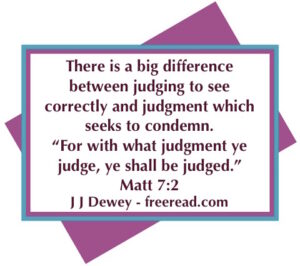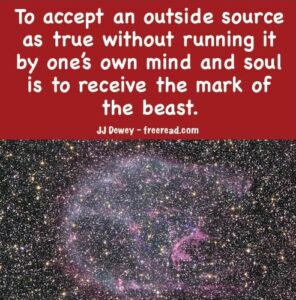
The Mark of the Beast
2021 Gathering, Part Eighteen
What’s interesting is that authority has been considered a good thing and the days of Jesus was no exemption. In past ages we had an emperor or king with strong authority. The people thought that it was good to have a strong king, and this king . . . if you don’t do what he says, off with your head. They really respected the king as long as it’s the “right head” that goes off. (laughing) You know, “not my head.”
So the strong authority was respected, and Jesus had to set up the organization of the Molecule in that day with fairly strong authority, and he had to demonstrate that authority with the great miracles he performed. The great miracles that he performed, caused people to look upon him as “wow, this is a man with authority!”
Like, when he stilled the winds, and there was a big storm . . . they asked, “what manner of man is this?” that even the winds obeyed him. And they began to see his authority, respect it. That authority was good, but the way it was seen was not so good, for there was something flawed in the way the authority began to develop after the days of Jesus.
John the Revelator saw that this was happening for he said, “even now, the antichrist is in the world.” (I John 4:3 ) And what is the religious world expecting? They think the antichrist is going to show up in the near future. But John, in one of his short books, said that, “even now, the anti-christ is in the world.”
So even then, it was “in the world.” So John saw that this negative spin on authority was going to get out of hand sometime by the end of the Piscean age. The Piscean age represents this powerful authority, and the unearned authority is the mark of the beast. He saw the beast rise up out of the sea with seven heads and ten horns and ten crowns upon his heads. This beast represented powerful authority. We won’t go into everything that the beast means right now, but we have the beast and then the image of the beast. These all represent extensions of powerful misuse of authority.
Now there’s two types of authority. There’s earned authority and unearned authority.
Authority in this age has some good aspects to it if it is an earned authority. In other words, if you’re going to learn Spanish, and your teacher can demonstrate that he can speak Spanish, and he can write it, and he knows all about it, he is an earned authority. And when he teaches you something about Spanish, you think “well it’s probably true,” because he has demonstrated he understands it.
If you have another teacher who can’t speak it, who says, “yeah, I can teach you,” then you’re not sure whether you can trust him or not when he tells you how a word is pronounced. Maybe he’s right. Maybe he’s wrong. But if he demands that you believe him whether he has authority or not, then that’s the misuse of authority. And we see that misuse all the time in our system today.
The government comes out with something, like say the current vaccine. We don’t know if it’s safe or not, but if anyone doubts it, they want to punish us. If somebody believes it, fine. It may or may not be safe, but we should have the freedom to doubt. They don’t give us the freedom to doubt. They say, if the government decrees something, we’re just supposed to accept it without doubt. If we doubt, then they want to punish us.
So, the beast will come forward, and he will permeate society and he will demand that we have a mark in the right hand or the forehead. It says, without this mark, we can’t buy or sell. So how do the regular fundamentalist Christians interpret the mark of the beast? Anybody know?
Audience: They say it’s a physical mark.
JJ: Physical mark. Right. Have you heard about the computer chip being planted in your right hand?
Rebecca: Inaudible – something about the MRNA vaccine.
JJ: Okay, so . . . it never made a lot of sense to me, putting a computer chip in the forehead. (laughing) I wonder how they figure that. Okay, so other people think the barcode is the mark of the beast because apparently it has 666 in it somehow. So they come up with all kinds of things that they figure the beast will be doing to prevent us from buying or selling.
Now what’s interesting is that during the rise of Hitler, a lot of people thought that he might be the antichrist. He did decide to put a mark in people’s hands, and since he read the Bible, he thought, “well, I don’t want to be compared with the beast, so I’m not going to put it in the right hand, I’m going to put it in their left hand.” So with the Jews, he put the mark in their left hand, rather than their right hand so he wouldn’t be compared to being the beast.
If he would’ve put it in the right hand, people would’ve had evidence for him being the beast. So I thought that was a clever thing for him to do, to use the left arm and left hand for the marks that he put in various people.
The fact that he put the mark in the left hand, did not mean that the Nazis escaped the mark of the beast. They still had the mark of the beast. The mark of the beast in the right hand . . . what does that mean?
Asaph: The deeds.
JJ: Right. The deeds. Your labor. The right hand symbolizes your labor. It means that the labors that you perform have to be approved by unearned authority. Okay. So the mark in the forehead . . . what does that mean?
Curtis: The way you think.
JJ: The way you think. The thoughts that you think and believe in, must be approved by an unearned authority. That would be the mark of the beast in the forrehead.
I realized this when I was in the Mormon church, when I was about to be excommunicated. I thought, “they are the mark of the beast.” They put the mark of the beast in the forehead. If you think differently, they will get rid of you. That’s what happened to me. I escaped the mark of the beast by declaring “I do not have to think the way I’ve been told to think, by people that don’t know the truth.”
The people who are unearned authorities were telling me what to think, and I did not have to participate so I could escape the mark of the beast. And in Revelation 14: 1, it tells about people who escape the mark of the beast, and where did they have the mark?
Adam: The name of God in their hearts . . . heads.
JJ: Right. The name of God was in their foreheads. It says they had the name of God in their foreheads. Instead of the mark of the beast in their foreheads, it says the 144,000 that “followeth the lamb whithersoever he goeth,” hath the name of God in their foreheads, not the mark of the beast. These are people who escape the mark of the beast. But what does it mean to have the name of God in your forehead?
Curtis: You follow your inner light. Follow your own soul.
JJ: Right. That means that you realize that God can speak to you personally. That you have within you a spark from God. You have within you a connection to God that bypasses any outward authority. If you have a revelation, an intuition, an instinct that comes to you from the God within your forehead . . . and the crown, the ajna center within you’re forehead . . . is said to be the throne of God. God sits in between the two pedals of the ajna center. A pedal here and a pedal here (pointing), and the throne of God is here. This is where the throne of God is within the forehead that you can tune into and bypass any mark of the beast. So you can escape the mark of the beast in the forehead by focussing on God sitting on his throne in the forehead.
So it says, “144,000.” Does that mean like the Jehovah’s Witnesses taught, until recently at least, when they exceeded the number . . . that there are only going to be 144,000 in heaven, and then that’s it?
Curtis: Inaudible.
JJ: Yeah, the Jehovah’s Witnesses are kind of funny there. They taught that . . . when they were a small church, they taught that there was a limit. Then when the people that were claiming to be or get the revelation of the 144,000, that they were one of them . . . when they exceeded the 144,000, then they went back to the Bible and they found, “well, there’s another group here that might get into heaven.” (laughing)
So they’re squeezing more people in now. (laughing) But that’s funny how that happens when the scriptures don’t quite fit people’s interpretation. Then they can alter their interpretation to make it fit their mindset.
No. The 144,000 is just a symbolic number. It’s a molecular number, representing what you might call a human cell. It doesn’t correspond a hundred percent to a human cell, but it’s a molecular combination where, when there is a 144,000 with soul contact, they will reach a lifeform together that, it says, “they follow the Christ whithersoever he goeth.”
So they will be like 144,000 Messiahs, so to spea, but that’s just one number. Then there will be a second 144,000. And then a third 144,000. So, it’s not a limiting number. It’s a number of a combination that will produce some spectacular results when that number is reached.
Curtis: It’ll be like a planetary DNA.
To search the website, containing millions of words, replace the word “search” with the word or phrase you want to find and place the entire line in the Google search box.
“Search” site:freeread.com
Easy Access to All the Writings
For Free Book go HERE and other books HERE
JJ’s Amazon page HERE
Check out JJ’s Facebook Group HERE
